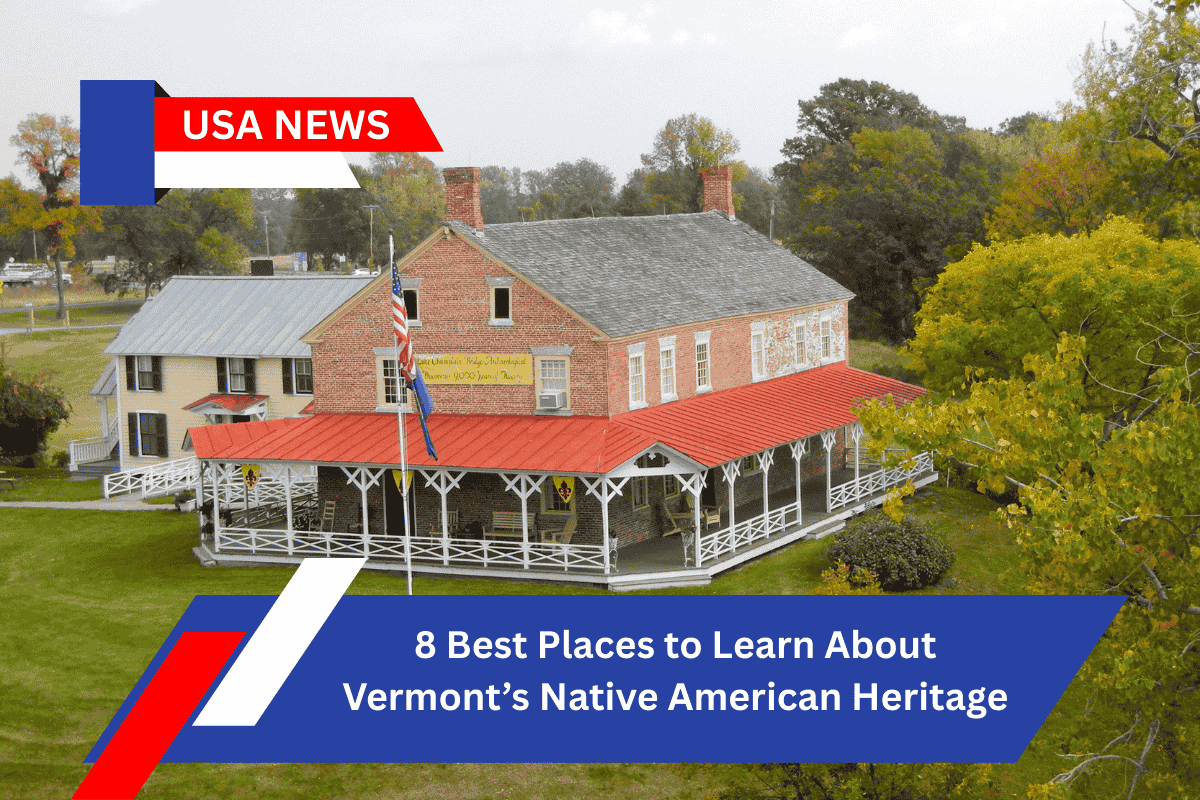Vermont is known for its natural beauty, charming towns, and rich history — but one part of that history that often gets overlooked is the Native American heritage of the region. The state is home to the Abenaki people, one of the oldest Indigenous groups in the northeastern U.S.
If you’re interested in learning more about Vermont’s original inhabitants, there are several meaningful places across the state that highlight their culture, history, and traditions.
1. Elnu Abenaki and Nulhegan Abenaki Tribal Offices
Located in Southern and Northeastern Vermont, these are two of the state-recognized Abenaki tribes. Though not traditional tourist spots, both offer cultural events, workshops, and heritage days where visitors can learn directly from Abenaki people about their history, crafts, language, and lifestyle.
2. Abenaki Heritage Weekend – Lake Champlain Maritime Museum
Held each summer, this special weekend invites Abenaki artists, historians, and storytellers to share their traditions. You can see live demonstrations of basket weaving, drumming, beadwork, and even listen to ancient stories passed down through generations.
It’s a family-friendly, educational event that gives deep insights into Native culture.
3. Vermont Indigenous Heritage Center – Burlington
Run by the Indigenous community, this center focuses on preserving and teaching about the native cultures of Vermont. It features traditional tools, clothing, and artifacts, and offers classes and cultural programs throughout the year. It’s a great place to learn about the real history behind Vermont’s land.
4. Chimney Point State Historic Site – Addison
This riverside historic site highlights thousands of years of human activity — from Native American settlements to French colonists. Inside the museum, you’ll find exhibits on early Indigenous tools, pottery, and life on the land long before Europeans arrived. It’s one of the oldest-known Native occupation sites in Vermont.
5. Ethan Allen Homestead Museum – Burlington
Beyond the Revolutionary War hero’s home, this museum also explores the Abenaki people’s relationship with the land. Exhibits cover how Indigenous communities lived, hunted, and interacted with nature in the region. Some displays are co-curated with local Abenaki members to ensure accuracy and respect.
6. Rokeby Museum – Ferrisburgh
While best known for its Underground Railroad history, the Rokeby Museum also includes land once used by Native peoples. The museum often collaborates with Native storytellers and historians for events that connect the dots between land, identity, and Indigenous presence in Vermont’s past.
7. Missisquoi National Wildlife Refuge – Swanton
This scenic refuge not only protects wildlife but also sacred land traditionally used by the Abenaki. Interpretive signs and occasional cultural events help visitors understand the spiritual and historical importance of the area to Indigenous communities.
8. Montpelier Abenaki Cultural Events
As the state capital, Montpelier often hosts public Indigenous events including powwows, educational panels, and art exhibits celebrating Native life. These are great opportunities to meet Native Vermonters and learn about the living traditions that continue today.
Learning about Vermont’s Native American heritage helps deepen our understanding of the land and the people who have cared for it for thousands of years.
Whether through museums, events, or sacred sites, each of these places offers a unique way to connect with Vermont’s Indigenous roots and appreciate their ongoing contributions to the state’s culture.
SOURCES
- (https://en.wikipedia.org/wiki/List_of_museums_in_Vermont)
- (https://vermonthistoryexplorer.org/places-to-go)
- (https://vermonthistoryexplorer.org/the-abenaki-and-the-europeans)
